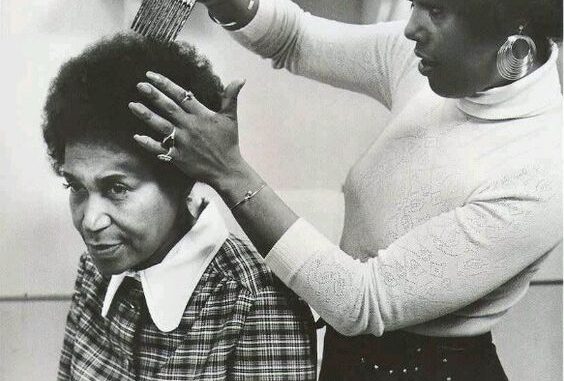
Television in the 1970s and 1980s gave audiences some of the most memorable characters in pop culture history.
Among these unforgettable personalities were two iconic matriarchal figures: Grandma Huxtable from The Cosby Show and Willona Woods from Good Times. Both characters, while from vastly different backgrounds and circumstances, were strong, loving, and powerful Black women who embodied resilience, humor, and an unwavering commitment to their families and communities.
The Cosby Show, which aired from 1984 to 1992, revolutionized television by portraying a successful and loving African-American family. Phylicia Rashad’s portrayal of Clair Huxtable, the family’s lawyer mother, became iconic, but it was the addition of matriarch Anna Huxtable, affectionately known as “Grandma Huxtable,” that further solidified the show’s family-centric narrative.

Played by the talented Clarice Taylor, Grandma Huxtable represented wisdom, tradition, and a grounding presence within the family. Her role as the mother of Bill Cosby’s character, Dr. Cliff Huxtable, added a layer of generational depth to the show, emphasizing the importance of family heritage. She provided sage advice and brought with her the values of an earlier generation, reflecting the generational wisdom that families often depend on.
Despite her age, Grandma Huxtable was portrayed as sharp-witted and active, often playfully engaging with her grandchildren and participating in family events. Her dynamic with Clair, Cliff, and their children illustrated how multigenerational households can offer emotional support and stability, while her character reinforced the themes of love, discipline, and family unity that were central to the show’s appeal.
In contrast, Good Times, which aired from 1974 to 1979, offered a much different setting—a struggling African-American family living in the Chicago housing projects. Yet, despite the show’s depiction of economic hardships, it delivered humor, warmth, and optimism through characters like Willona Woods.
Played by the vivacious Ja’Net DuBois, Willona Woods was the fashionable, outspoken, and fiercely independent neighbor of the Evans family. Though Willona was technically not a matriarch in the biological sense, she became a maternal figure in the life of her adopted daughter, Penny (played by a young Janet Jackson), and a surrogate aunt to the Evans children.
Willona’s character stood out for her confidence and humor, often using quick wit to deal with the many challenges of life in the projects. Her independence and style were bold, and she represented a unique kind of strength for women of her time—being a single woman, unafraid to speak her mind while providing emotional support to those around her. Willona’s friendship with Florida Evans, the show’s matriarch, was a testament to the power of community, as the two women leaned on each other for support through financial struggles, loss, and raising children in difficult circumstances.
When Willona adopted Penny, her role expanded from the sassy neighbor to a full-fledged mother figure. This transition highlighted her growth as a character, showing the depth of her capacity for love and responsibility. Her bond with Penny became a central emotional element of the show, revealing Willona’s nurturing side and her determination to provide a better life for her daughter.

While Grandma Huxtable and Willona Woods came from vastly different worlds—one being part of an upper-middle-class, educated household, and the other struggling in an inner-city environment—both characters represented different facets of the Black experience on television. They were strong, caring women who showed that no matter the economic circumstances, love, resilience, and humor are at the heart of family life.
Grandma Huxtable embodied tradition and family unity, often acting as the steady hand guiding her children and grandchildren with wisdom passed down through generations. Willona, on the other hand, represented the spirit of independence and community. She showed that even without traditional family structures, one could still create meaningful, loving relationships and offer a nurturing home.
Both characters played critical roles in shaping how Black women were represented on television during their respective eras. They showed audiences that Black women could be funny, caring, strong, and complex, transcending the typical stereotypes that had often limited portrayals of African-American women on screen.
The legacies of Grandma Huxtable and Willona Woods continue to resonate today. These characters broke barriers in the ways Black women were depicted on television, offering positive and multifaceted portrayals that celebrated the diversity of Black family life. The humor, wisdom, and strength they brought to the screen helped pave the way for more inclusive and nuanced representations of Black families in subsequent generations of television.
Through Grandma Huxtable and Willona Woods, viewers saw two very different but equally important aspects of Black womanhood. One rooted in tradition and family structure, the other built on community and independence. Both women remain beloved characters who showcased that the strength of Black women lies not only in their resilience but also in their capacity for love, laughter, and leadership.
